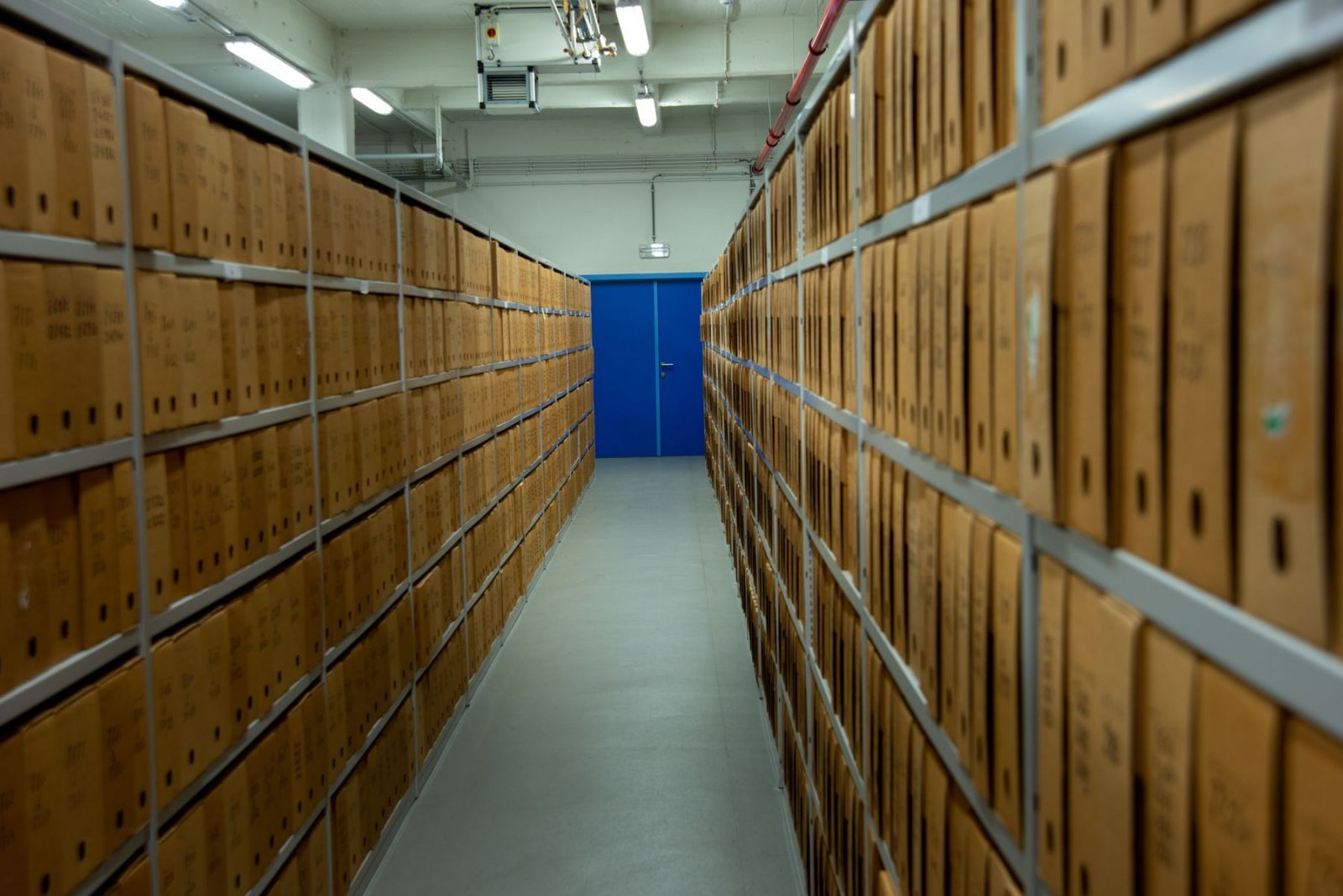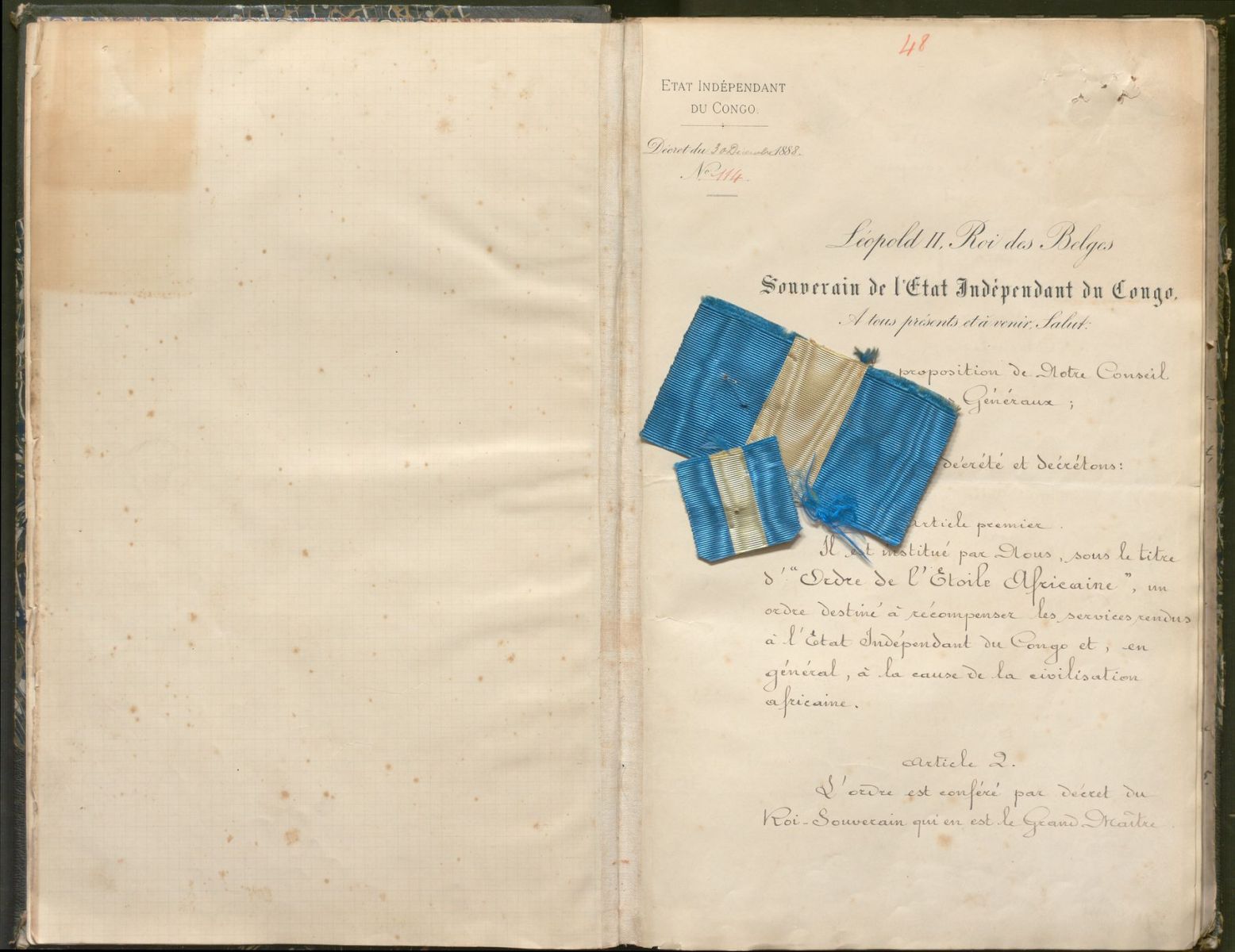
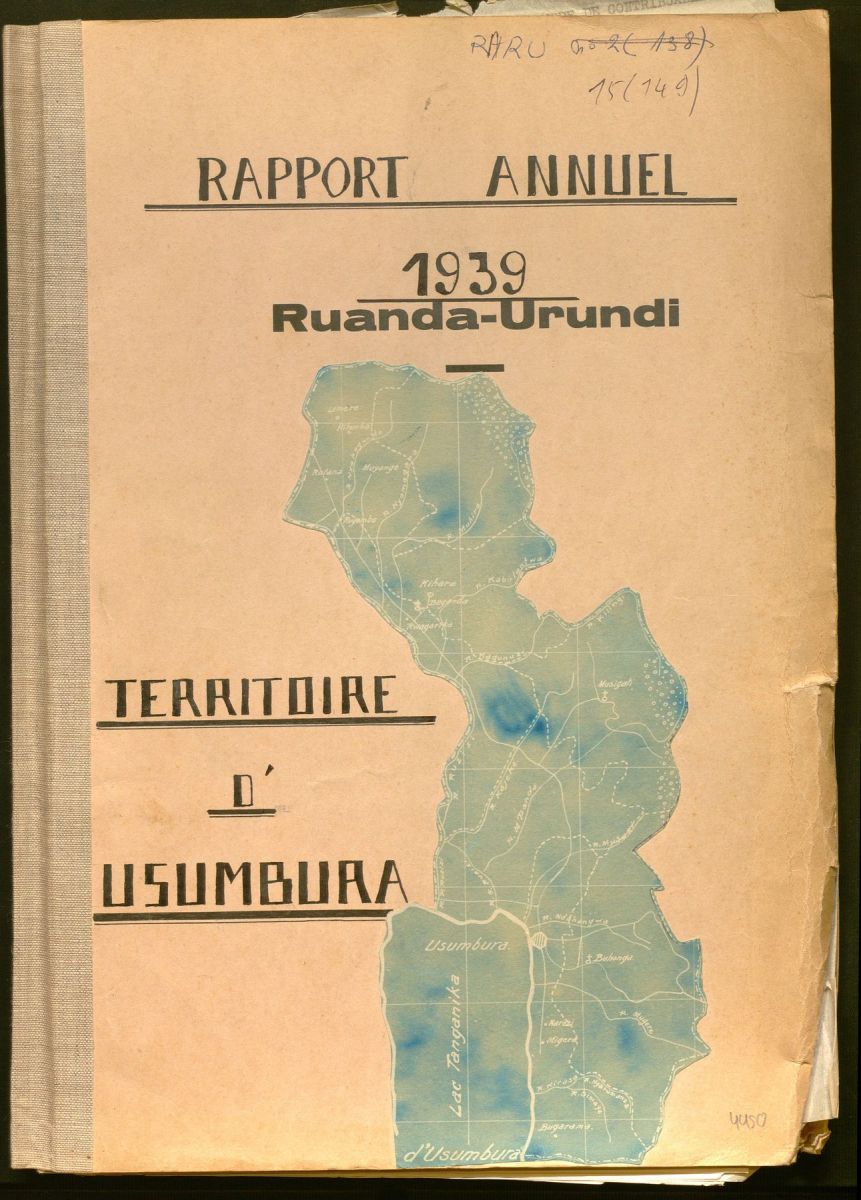 The “Africa Archives” are the public records of the Belgian colonisation in Congo, Rwanda and Burundi. For a long time, these 9.5 linear kilometres of archives were kept at the FPS Foreign Affairs and are currently being transferred to the National Archives of Belgium 2 - Joseph Cuvelier repository (NAB2), in accordance with applicable law (Archives Act of 24 June 1955, amended by the law of 6 May 2009). To date, about 5 linear kilometres of archives have been transferred since the first batch was handed over in 2016. The Africa Archives remain accessible to the public during the transfer operations under the same conditions that apply to the other collections preserved by the State Archives.
The “Africa Archives” are the public records of the Belgian colonisation in Congo, Rwanda and Burundi. For a long time, these 9.5 linear kilometres of archives were kept at the FPS Foreign Affairs and are currently being transferred to the National Archives of Belgium 2 - Joseph Cuvelier repository (NAB2), in accordance with applicable law (Archives Act of 24 June 1955, amended by the law of 6 May 2009). To date, about 5 linear kilometres of archives have been transferred since the first batch was handed over in 2016. The Africa Archives remain accessible to the public during the transfer operations under the same conditions that apply to the other collections preserved by the State Archives.
Project team: Marie Van Eeckenrode (coordination), Bérengère Piret, Reinout Vander Hulst and Faissal Beddi.
- The “Africa Archives”
- Transferred fonds and their inventories
- The reorganization of the archives of the Gouvernement général (‘GG’)
- Individual files of the African Personnel
The “Africa Archives”
Two terms are used in Belgium to refer to the public records of the Belgian colonisation in Central Africa: “Africa Archives” and “Colonial Archives”.
The term “Africa Archives” denotes only the colonial archives kept at the Federal Public Service Foreign Affairs that are currently being transferred to the State Archives. It refers to the last denomination of the Ministry of Colonies, namely the Ministry of African Affairs. When it was liquidated in 1962, the Archives Service of the Ministry of Foreign Affairs, which inherited the archives of the Ministry of African Affairs, created a new archives service for the “Africa Archives” that was separate of the diplomatic archives service. The term “Colonial Archives” (or archives related to the colonisation) encompasses a larger number of archive creators. The “Colonial Archives” denote all public and private records relating to the colonisation, that is to say documents produced by the colonial authorities as well as those produced by the missions, businesses and of course the local actors in Congo, Rwanda and Burundi. All of these “Colonial Archives” preserved in Belgium are listed in the Sources guide to the history of colonisation.
Reflecting the institutional, administrative and judiciary system that produced them, the “Africa Archives” (1885-1962) are composed of two main collections:
- The first one includes the archives originally produced by the Gouvernement général (General Government) of Congo, known as Administration d’Afrique (Africa Administration), which was also responsible for the Mandate and later Trust Territories of Ruanda-Urundi, as well as the archives produced by its legal predecessor, namely the Gouvernement local (Local Government) of the Congo Free State (approximately 6 linear kilometres);
- The second one is made up of the archives produced by the Ministry of Colonies, known as Administration métropolitaine (Metropolitan Administration), by its legal predecessor, namely the embryonic Gouvernement Central (Central Government) of the Congo Free State, and by its legal successors, namely the “Ministère du Congo et du Ruanda-Urundi” (Ministry of the Congo and Ruanda-Urundi) and the “Ministère des Affaires africaines” (Ministry of African Affairs) (total: approx. 3.5 linear kilometres).
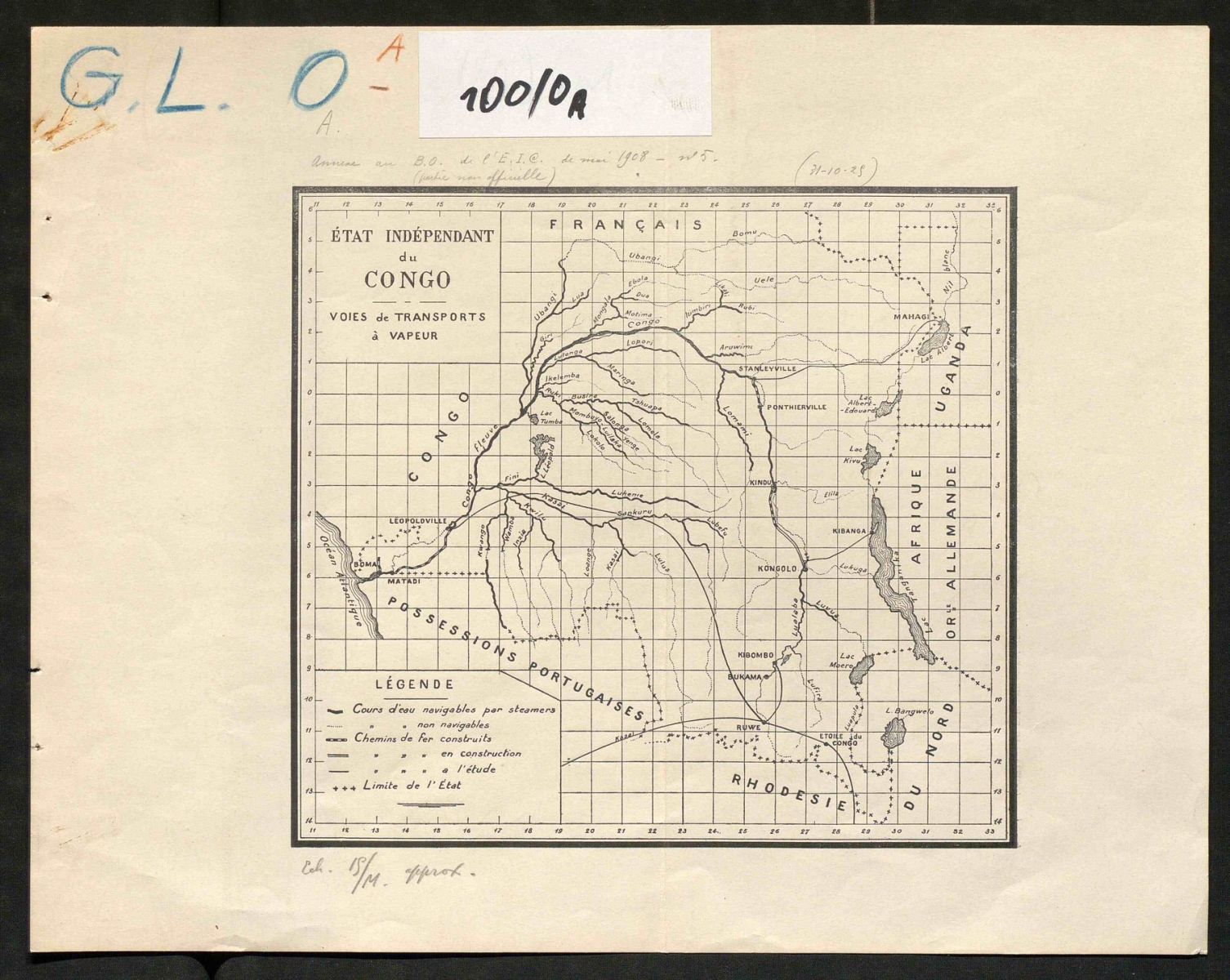 But the “Africa Archives” also include:
But the “Africa Archives” also include:
- Cabinet archives of the ministers in office.
- Archives of the external services of the Administration métropolitaine, such as the “Musée royal du Congo belge” (Royal Museum of the Belgian Congo) or the “École coloniale/École d’Administration du Congo belge et du Ruanda-Urundi” (Colonial School/School of Administration of the Belgian Congo and Ruanda-Urundi).
- Archives of colonial law organisations such as the “Fonds Reine Élisabeth pour l’Assistance médicale aux Indigènes (FOREAMI)” (Queen Elisabeth Fund for the Medical Assistance to Indigenous Peoples) or the “Fonds du Bien-Être indigène (FBEI)” (Fund for the Well-Being of Indigenous Peoples).
- Archives of Belgian law organisations such as the “Académie royale des Sciences d’Outre-Mer” (Royal Academy for Overseas Sciences), the “Institut de Médecine tropicale” (Institute of Tropical Medicine), and SABENA.
- Archives of advisory bodies such as the “Conseil colonial” (Colonial Council) and the “Conseil de Législation” (Legislative Council).
- Private archives relating to the colonisation.
Transferred fonds and their inventories
Every month, new archival fonds are transferred from the FPS Foreign Affairs to the State Archives. These archives are available for consultation by appointment in the reading room of the State Archives.
Download the status of transferred fonds and access the inventories!
The above list provides monitoring of the transfer and offers an overview of the fonds and collections that have been transferred to the State Archives. Fonds not listed are still accessible in the reading room of the FPS Foreign Affairs, also by appointment.
This list also indicates how to access the various inventories. The transfer of the 'Africa archives' involves significant efforts to (re)inventory the fonds according to international standards in order to improve access to these archives. For fonds that have not yet been processed, the old inventories of the FPS Foreign Affairs are still used.
Finally, this list indicates which files have been digitized and how to access the digitized images.
The reorganization of the archives of the Gouvernement général (‘GG’)
The 6 linear kilometers of archives of the Gouvernement général in Leopoldville are currently undergoing significant reorganization and treatment against mold. Over time, these funds have been mixed, series scattered, and files dispersed. They now constitute what is commonly referred to as the 'GG' collection.
As part of the transfer of the so-called Africa archives, the State Archives and the FPS Foreign Affairs are currently conducting a complete reclassification of the 'GG' collection to come as close as possible to the original organization of the fonds. More concretely, archivists extract files from the GG collection to physically and intellectually reform coherent series: archives of a court, archives of an adminstrateur territorial, archives of the education service in Leopoldville, notarial archives, etc. These archives remain accessible to researchers. Each reconstructed fonds is transferred to the State Archives and provided with a provisional finding aid.
A list of 'GG' files already transferred to the State Archives is also available to researchers. This allows them to know in which reading room they can consult the archives of their interest: that of the AGR2 or that of the FPS Foreign Affairs. All files indexed as 'GG-Justice' have been reclassified, restored, and transferred to the State Archives.
It is uncommon to publish provisional finding aids, but here it addresses an urgent need: ensuring access to the archives during their processing and offering more efficient tools as quickly as possible.
Individual files of the African Personnel
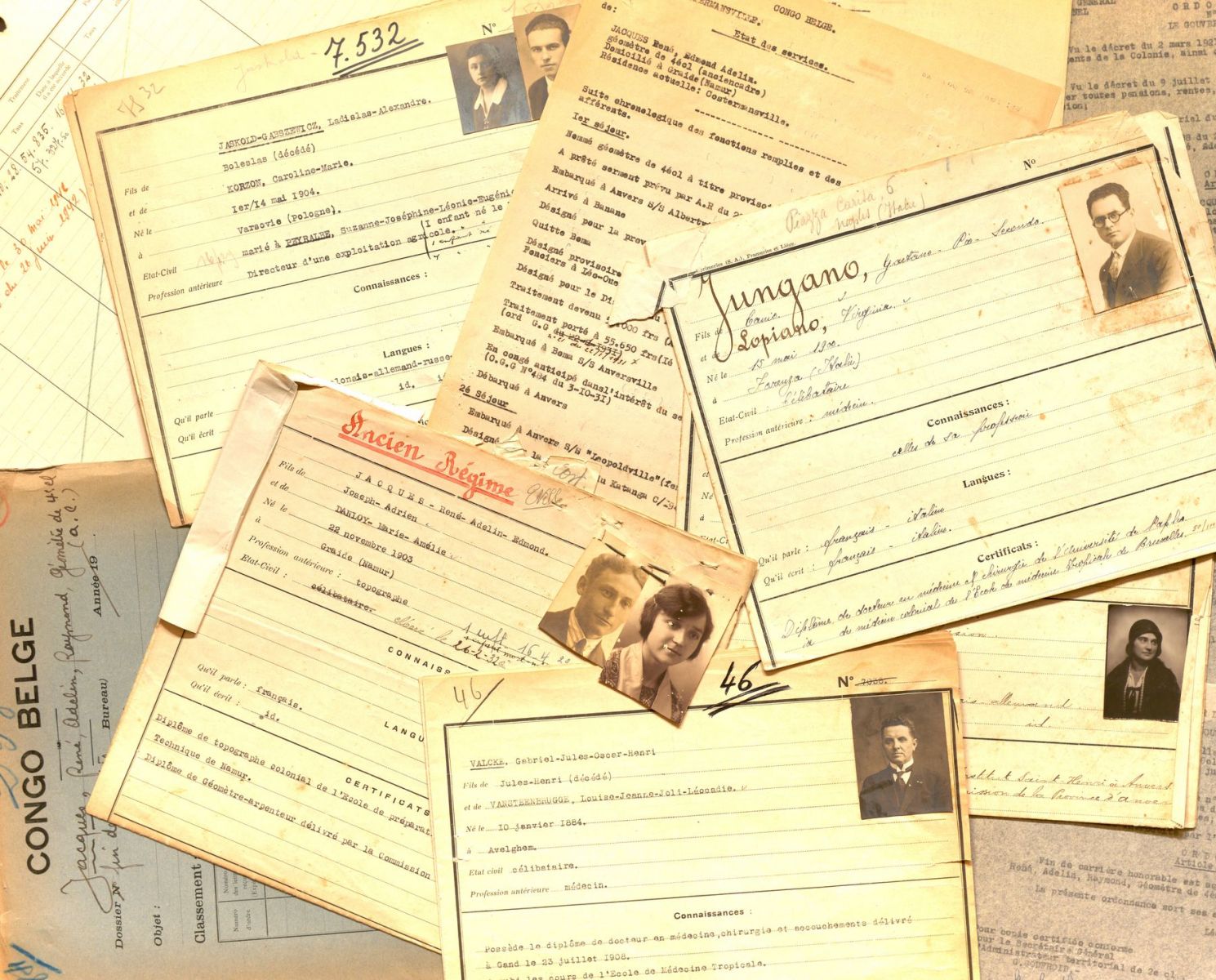
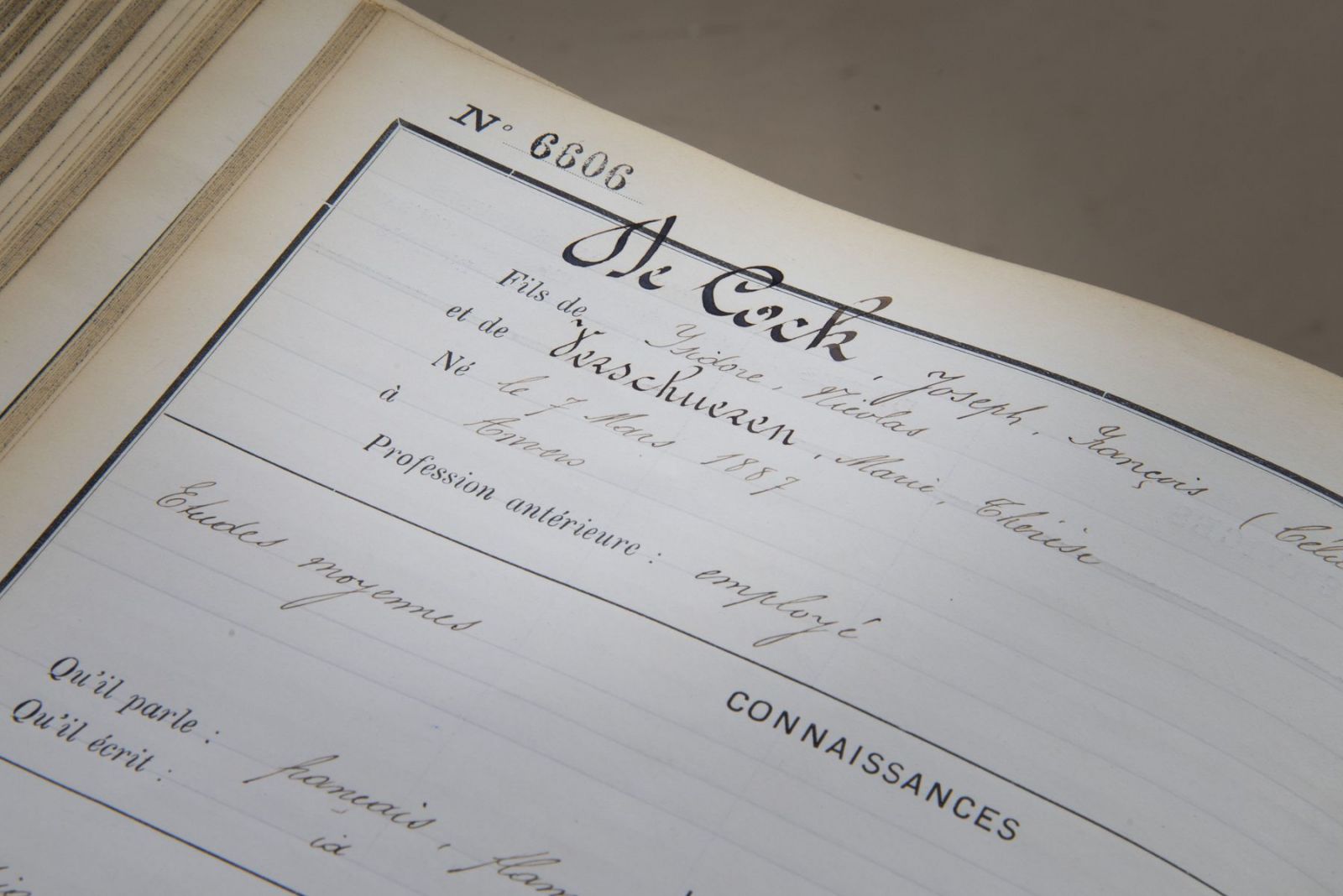 The archives of the African Personnel Service form a remarkable set of records among the “Africa Archives”. They consist of 110,000 index cards and individual files of Belgian agents and public officers working in the colonised regions on behalf of Congo Free State and/or the Ministry of Colonies. Among the different records series are two exceptional series about the African personnel employed by the colonial administration.
The archives of the African Personnel Service form a remarkable set of records among the “Africa Archives”. They consist of 110,000 index cards and individual files of Belgian agents and public officers working in the colonised regions on behalf of Congo Free State and/or the Ministry of Colonies. Among the different records series are two exceptional series about the African personnel employed by the colonial administration.
The inventory to access these 110,000 cards and files are gradually being put online. Fill in the "Name" field and select the "Personnel d'Afrique" project.
You can also send your questions by email.
The “registres de la matricule”, which compile the cards of civil servants serving between 1877 and 1914, have been digitised. They can be accessed via our search engine "Search archives". To navigate through these registers and find the references of the cards you are interested in, you can either use the indexes of the registers or the search engine "search for persons" (project "personnel of Africa").
Page update: 23 July 2024





